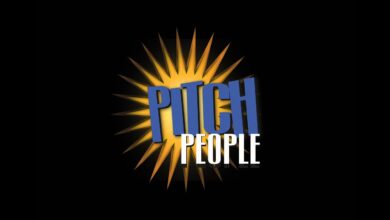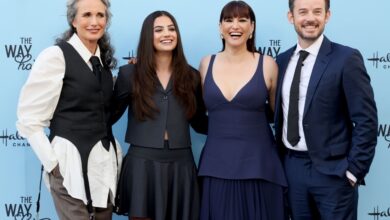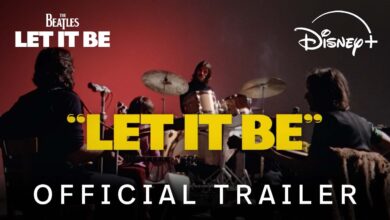Interview: Director Oánh Nguyễn discusses the theatrical hit ‘Colonialism is Terrible, But Phở is Delicious’

Oánh Nguyễn, the director of the play “Colonialism is Terrible, But Phở is Delicious,” which explores the cultural history of the well-known Vietnamese dish with a hilarious take, discussed the play’s production and significance with Hollywood First Look.
Originally performed as a live online reading in 2021 due to pandemic restrictions, Dustin H. Chinn’s “Colonialism is Terrible, But Phở is Delicious” has since become a three-part rolling world premiere, a format championed by NNPN [National New Play Network]. The wide release is a unique way to get more visibility for a playwright usually limited to one city. Nguyễn and Chinn opened the show at Aurora Theatre Company in Berkeley this past November. The insightful satire began its run at Chance Theater in Anaheim on March 31 and will conclude on April 30. When we caught up with Nguyễn, he was prepping for the next leg at Oregon Contemporary Theatre, which will run from April 30 to May 19.
Except for one Vietnamese male actor from Aurora who’ll be in Oregon, the cast differs in each production. Some of the designs from Aurora made it to the Chance, Nguyễn points out, but the only thing going to Oregon is the sound design. So the sets are very different.

“A lot of things are very different in Oregon, just because it’s new designers and people,” Nguyễn says. “The only people that are sticking around, [as the two productions overlap] is the playwright, of course, myself, the dramaturg [Natalia Dương], and then the sound designer [James Ard].”
Hollywood First Look: That’s so cool. So you’re reimagining this in three different parts.
Oánh Nguyễn: Yeah, it’s meant to be staged in three different parts. And of course, the spirit has changed so much, you know, the script between Aurora and the Chance changed a lot, and then he [Dustin] has already given us like three pages worth of changes for Oregon.
Hollywood First Look: What is at the heart of this show?
Oánh Nguyễn: It’s special in many different ways. There’s the most obvious way, which is talking about the history of this well-loved dish, phở. Something I grew up with. Talking about the possible history all the way back to the 1800s, whether it came from the French, the Chinese, or a Vietnamese dish. The history of phở is so special.
Hollywood First Look: What else would you say makes it special?
Oánh Nguyễn: Dustin has done something special in the American theater. He has created roles for Vietnamese actors for Asian actors, specifically, picking those when possible that just show their full selves. When I was a theater artist myself, I remember one of my first major regional theater productions that I was a part of. There was this Vietnamese character who struggled with the language, who only really ultimately said 10 lines throughout the whole play even though the play was about him. So, to create characters, to create roles for Vietnamese artists or for Asian artists who are allowed to be funny, they’re allowed to get angry, they’re allowed to be sarcastic, they’re allowed to be full human beings because they’re not restrained or limited by “the ability to communicate,” is incredible. There’s just not much out there in the American theater that allows that to happen.
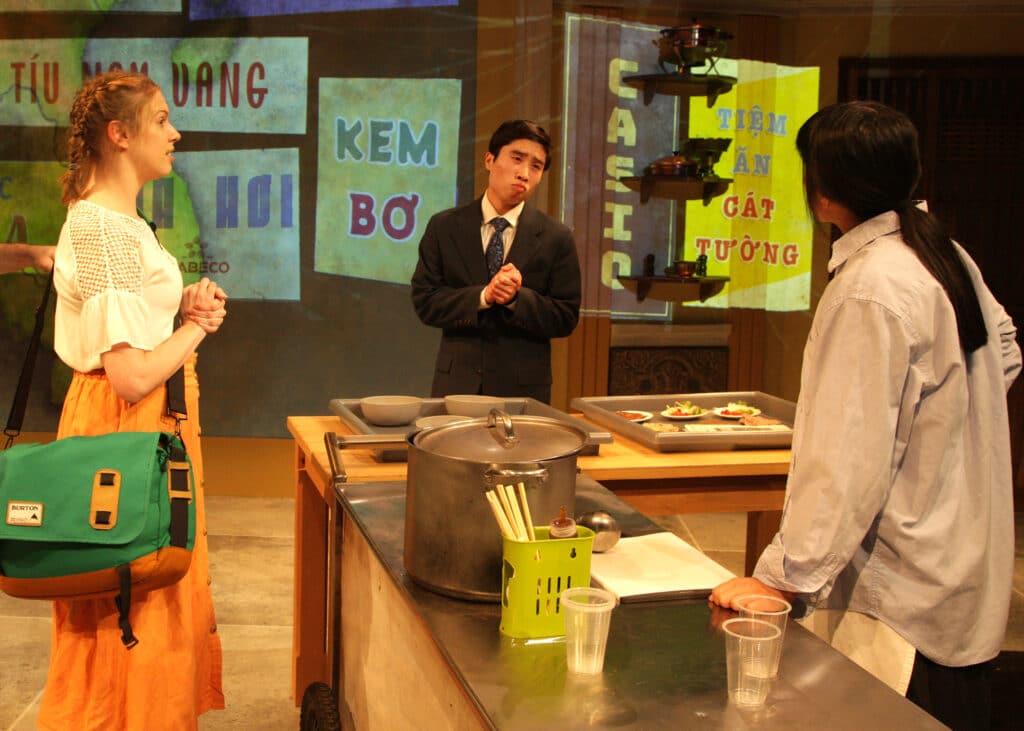
Hollywood First Look: Tell me more about the story.
Oánh Nguyễn: This story takes place in three different timelines. Two Vietnamese actors that we have at the Chance get to play three different roles. One is from 1889 Indochina, which you know, ultimately is, Hanoi, but Indochina. Part two takes place in 1999 in South Vietnam, just as the border is being opened up for Western businesses and just months before Clinton shows up for his big visit. And then it takes place in present-day Brooklyn at a bougie hipster Vietnamese restaurant. They come in with masks on, and there’s a QR code for their menu, and the phở costs $45. So they can play all three of these types of characters. What he [Dustin] has done with the language is he’s made the Vietnamese language Standard English so the actors playing these Vietnamese characters can speak and express themselves freely. He’s actually turned the table and made it so that the Caucasian actors in parts one and two, when they’re speaking French, they have to speak in this highly cartoony French accent so that the audience understands them but, at the same time, gives you the sense that maybe the French language sounds funny to a Vietnamese person.
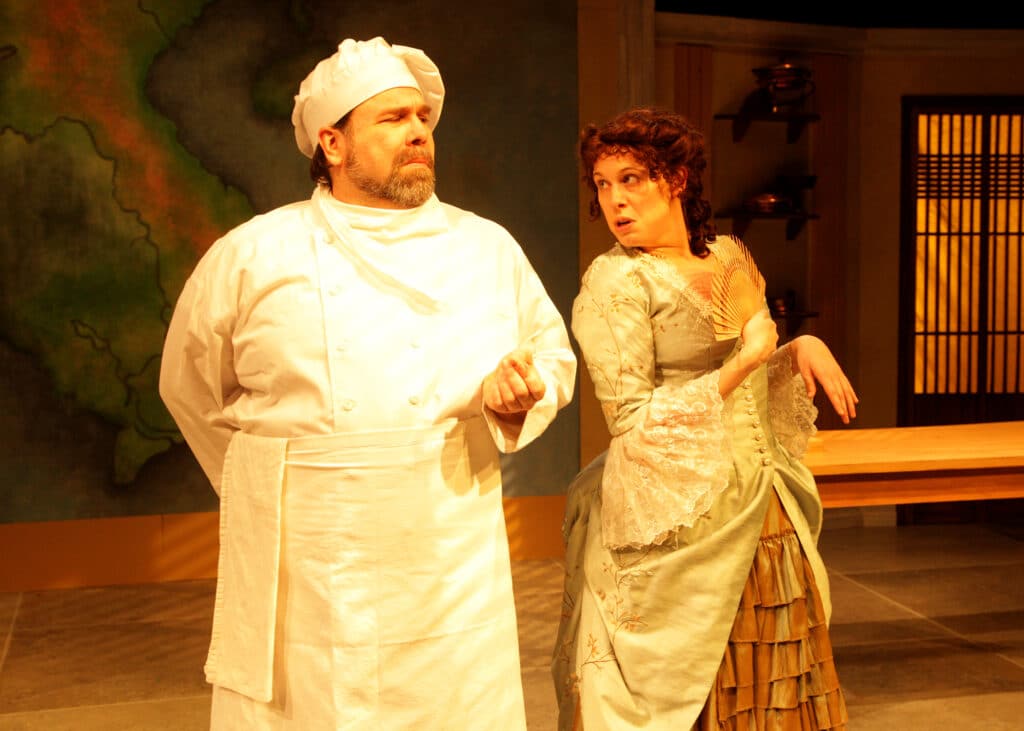
Hollywood First Look: That’s a perspective we really haven’t seen before.
Oánh Nguyễn: Also, the French characters are trying to Speak in Vietnamese. They’re the ones now struggling to communicate. They’re the ones that are limited in their ability to share what they’re sharing of themselves. In part two, 1999, the American tourists come in and have to speak in a strong southern accent. When they’re trying to speak Vietnamese, they speak with no accent, but they’re struggling to speak, while the Vietnamese characters speak Standard English and are able to fully express themselves. It’s centered around the Vietnamese point of view. In part three, there are no accents. It’s all present-day. But what [Dustin] is doing is he’s turning the table a little bit. He’s giving the American audience insight into the point of view of someone who doesn’t speak the language. He’s putting the Caucasian characters in the position of struggling to be understood. He’s giving them a point of view and experience that so many of us, immigrants and refugees, grew up with, an experience that they aren’t used to. Sometimes it’s also hard for them to see.
Hollywood First Look: There’s a larger conversation taking place as well.
Oánh Nguyễn: Yes, he’s having this larger conversation about colonialism and appropriation. What he’s doing about colonialism and appropriation is sort of macro-aggressions and micro-aggressions from these two things.
Hollywood First Look: These timelines are also important.
Oánh Nguyễn: The special thing is that he’s choosing to pick these timelines. If you look up French Indochina, I think the first image on Wikipedia is an image of a bunch of French soldiers standing beside three heads of Vietnamese that they have just beheaded. He’s choosing a time where it’s a little bit beyond that moment. So he’s not choosing a moment of trauma. He’s not choosing the Vietnam/American War. One of his core values is putting POCs on the stage. He’s purposely choosing times to say that these things are things they have to live with. It’s more about the survival strategies of the Vietnamese spirit. He’s less talking about victories in the moment versus survivors. What did the Vietnamese have to do to survive under French rule? What did the Vietnamese have to do in 1999 to survive open borders of the Western tourism machine that’s going to come in? And, of course, the present day. What does a person have to deal with regularly with macro-aggressions and micro-aggressions?

Hollywood First Look: How has the run been at the Chance Theater?
Oánh Nguyễn: It was a perfect fit for the Chance Theater because one of our core values is that we put on productions to bring people together to have discussions as a community. There are very few places where people can come together, experience something together, and be able to talk about it, even if you have a very different point of view. So we have talkbacks after every show. This play opens the door for so many conversations without anyone didactic. It’s about having the conversation.
Hollywood First Look: So, ultimately, what do you hope audiences take away? What do you hope they experience when they come to see the show?
Oánh Nguyễn: I hope they come in with an open heart, especially the traditional American theater audience. I hope they’d come in with an open heart and see if they allow themselves to sit through her [the main female character’s] shoes, stay in her shoes, and see the world through her eyes. To keep an open mind is to see the world through her eyes, which is something they’re not used to doing like it is something for us, something I’ve done my whole life. I’m sure other POCs have experienced that, too, in America. We’ve experienced stories, movies, plays, and music, and we were constantly seeing the world through other people’s eyes, other people who look very different from us. This is an opportunity for them to see it through ours. I hope there’s a sense of universality to it.

Hollywood First Look: You do all that with a humorous take.
Oánh Nguyễn: Yeah, I hope people have a great time. It’s a very funny play. The other big picture of this play is it’s a broad comedy about misunderstandings and different cultures coming together and trying to understand each other. Many nights that I’ve seen the show, people sometimes laugh so hard, they don’t see all the other stuff. We have to figure out the balance. That’s okay because Dustin and I think it’s more important that they feel entertained in the moment and think about it later. Nobody wants to go to a play about lectures. People get more once they’ve embraced it. And laughter is one of those telltale signs of an audience embracing the story.
For tickets to catch one of the remaining shows in Anaheim, click here. Up next at Chance Theater is another production Nguyễn is excited about. “Matinicus: The Story of Abigail Burgess,” by Jenny Connell Davis, directed by Katie Chidester, runs from May 5 to June 4.

